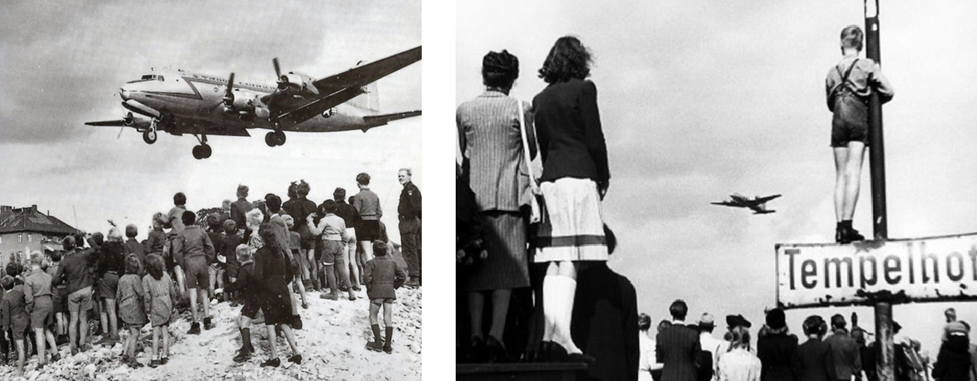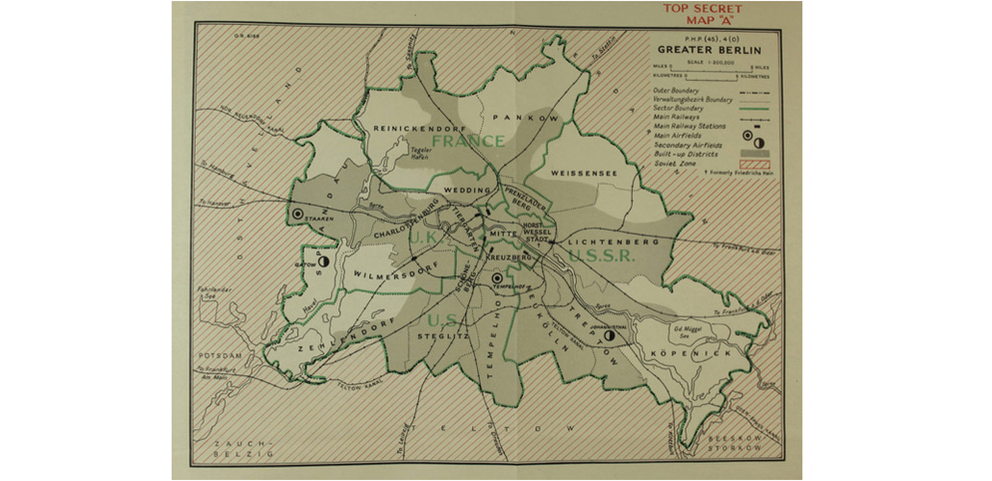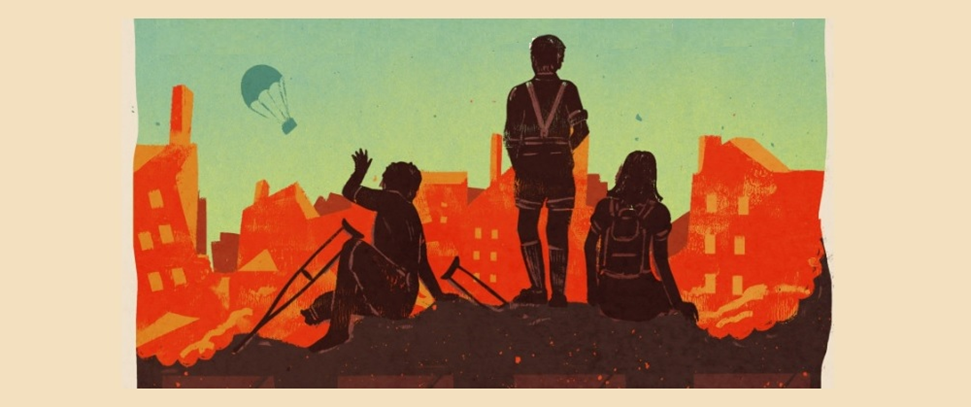Robin Scott-Elliot


About Author
Scottish born author Robin Scott-Elliot's latest historical fiction novel, Sweet Skies, takes us to post-war Berlin, a city under siege. Sweet Skies follows his earlier books, Hide and Seek, The Tzar's Curious Runaways and The Acrobats of Agra.
Robin, who lives in Dunbartonshire, worked as a sports journalist for the BBC and ITV, but always dreamed of being a writer. It was his daughters who encouraged him to start writing for children after the family moved from London back to Scotland. Robin's fascination with Russian history and Peter the Great's real-life Circus of Curiosities inspired him to write his critically acclaimed debut children's novel The Tzar's Curious Runaways.
You can follow Robin @RobinScottEllio
Interview
Sweet Skies (Everything with Words)
September 2023
Three teenagers, Otto, Karl and Ilse, have found each other in the ravaged and divided city of Berlin; the city is under siege by the Russians, and American pilots are bringing in much-needed supplies. Otto has a dream; to fly to America and to train as a pilot, and he sees a way to help make his dream come true, but at what cost?
Read a chapter from Sweet Skies
Review: "Robin Scott-Elliot is a master historical storyteller, and his writing gets better and better. This story is a nail biting, edge-of-the-seat adventure."
Sweet Skies is an inspiring story about friendship, loss and survival in a ruined city. Author Robin Scott-Elliot tells ReadingZone how his love of history, his family's links with Berlin, and a story about a kindly American pilot, helped inspire him to write it.
"My dad told me about being sent on a train journey across war-ravaged Europe to see his father for the first time in years. He remembered seeing groups of children staring at the train, standing in the ruins of their towns and cities."
Q&A with Robin Scott-Elliot
1. Can you tell us a little about yourself, loves and loathings, and what brought you into writing for children?
I love reading; I loathe French Onion soup! I love writing too, but never thought of trying to be a writer until well into my 30s. I was a sports journalist - I got to travel the world watching football, rugby, Olympics, Paralympics. It was my daughters who made me start writing for children. I used to tell them stories on journeys, stories of Scotland, legends, myths, monsters and when I couldn't remember how they went I made something up. I'd started trying to write adult fiction but my daughters insisted I write a story for them. So I did…
2. What kinds of books do you like to write, and why historical fiction? What have been your author highlights to date?
I write books I like to read - I guess I'm quite a selfish writer! History was my favourite school subject and I'm still fascinated by it. There are so many curtained-off corners of history to discover and so many great stories to fashion from them.
I find my ideas in history books - The Acrobats of Agra came from reading about a French travelling circus trapped in a siege; Sweet Skies came from reading about American pilots dropping chocolate to the children of Berlin.
My highlight? Finding out my first book, The Tzar's Curious Runaways, was to be published. I was in an opticians when I saw the email. I had to get Iona, my eldest, to read it out because I couldn't see it properly. That's why I was in the opticians!
3. What is your latest book, Sweet Skies, about?
We're in Berlin 1948, with Otto and his friends Ilse and Karl. With the city under Russian blockade, the Americans fly to the rescue and Otto's captivated by Hollywood-looking pilots dropping chocolate for the kids. But never mind the Hersheys - he wants to be up there with them. There's nothing he wants more than to be a pilot. Only now Otto has to choose between those he loves, or flying from a ruined city where danger lurks around every corner. And nobody's who they seem.
4. What drew you to this period and place in history for your new novel?
It began with reading about Gail Halvorsen, the Candy Bomber - the American pilot who first dropped sweets to Berlin's children. That seemed a good starting point for a story. My mum lived in Berlin as a child - she told me a few stories (one of which I stole for the book!).
It's also a period not often written about - the war may have ended but it's easy to forget how tough the journey was for so many once the shooting stopped. My dad told me about being sent on a train journey across war-ravaged Europe to see his father for the first time in years. He remembered seeing groups of children staring at the train, standing in the ruins of their towns and cities.

5. How did you go about researching this period? What did you discover?
You can add researching to my list of things I love, because it's an excuse to read lots of history books! The best source was Pathe News - the old newsreels shown in cinemas before the movie. Pathe have an excellent website where you can watch all their old footage, packaged and raw. I watched hours of it. Not only do you see what Berlin looked like, but if you keep an eye on the background you can watch the shops and streets and people. What are they wearing? What's in the shop windows? In historical fiction you are world-building just as much as in a fantasy novel.
It was a surprise to find so much raw footage, which really showed how people tried to get on with their lives, even find a bit of joy among the ruins.
6. What about the setting in Berlin - have you been there? How did you find out about it?
My family laugh at me because I've not been to Berlin since the Wall came down. I went when I was 12, when the city was divided into different zones. I've never forgotten seeing the Berlin Wall, guards cradling machine guns staring down on me from watch towers in East Berlin. It was the most exciting and scariest thing that had happened to 12-year-old me.
Berlin today is far removed from Berlin of 1948 so an old map - we got special permission from the National Archive to use the Top Secret one in the book, together with a history of the city and the hours of Pathe News footage, helped me build my setting.
I would highly recommend the Pathe website if you're a history obsessive like me or you've a project for school/college - every world event of the last 100 years is there.

7. How much research do you need to do before you start writing your historical fiction? What have you left out of your book?
I leave out far more than I put in - the red flag in historical fiction is not to turn it into a history lesson. History should provide background to the story. I frequently need to remind myself the story comes first.
8. So what are your top tips for writing great stories set in the past?
See above! The story comes first… don't swamp the reader with detail, or show off what you know. There's a tricky balance between making your characters true to their time while also relatable for today's readers. I mentioned world building earlier - that's all important. Berlin of 1948 is as foreign to us as District 12 in the Hunger Games. You have to make your reader believe they are there, surviving alongside Otto and his friends in the rubble… but without turning it into a history lesson
9. What are your top five historical fiction novels for children?
The Wolf Wilder by Katherine Rundell, Red Stars by Davide Morosinotto, The Skylarks War by Hilary Mckay, Kidnapped by Robert Louis Stevenson and Letters from the Lighthouse by Emma Carroll.
10. If you could visit any period from the past, which would you choose?
Great question! To be in St Petersburg during the Russian Revolution would be incredible but too scary, so I'll go for joining Robert Louis Stevenson in 1888 on his voyage around the Pacific islands. He took a large supply of champagne and a 'last-rites' kit just in case it all went wrong!

Themes to explore in Sweet Skies:
i. Who are the young people at the heart of this novel, and how did they develop? Why is their friendship so important?
Otto, Karl and Ilse found each other in the ruins, all three scarred by war. Their back-story was important in their creation - they've grown up under Nazi rule and have seen their world, their families, shattered because of the Nazis. Their lives have been shrouded by violence, fear and loss - which is why they, and Otto in particular, are so desperate to live and get everything they can from life. Otto refuses to be ground down by his surroundings - he wants to live his dreams, and his friends help him try to do that. Because that's what best friends do. Otto, Karl and Ilse find strength in each other. They've become a replacement family, and it's friendship that gets them through.
ii. Why do you put Otto's relationship with his father at the heart of this book?
Otto's father comes home from years in a Russian prison camp a broken man. It's confusing for Otto to understand his father, and his father has no understanding of the boy Otto has become. Everything needs rebuilding; it's all around them and it is them. Otto has to try and work his father out. Is he a bad man, a Nazi even? Can they be father and son again? Above all, what is the stronger bond for Otto - friends or father?
iii. What would you like your readers to take from Otto's pursuit of his dreams?
The night before answering this I watched Sha'Carri Richardson become 100m world champion. She's had a tough time. Afterwards she said: "It's about knowing that no matter what happens, you never lose sight of yourself. You're going to have good days, you're going to have bad days. But you live to see tomorrow. Every day the sun doesn't shine - but that's why I love tomorrow." Otto would have nodded along to that. And then challenged her to a race.
Hide and Seek by Robin Scott-Elliot
Robin Scott-Elliot introduces his earlier novel, Hide and Seek, which gives a glimpse into life in Occupied France during WWII and the risks taken by children as well as adults in the Resistance. Hide and Seek, which was partly inspired by a reading of The Diary of Anne Frank, follows one child, Amelie, and is a powerful and chilling story of growing up under Occupation during this devastating war:
Read an extract from Hide and Seek
 Sweet Skies
Sweet Skies
 Hide and Seek
Hide and Seek
 The Acrobats of Agra
The Acrobats of Agra
 The Tzar's Curious Runaways
The Tzar's Curious Runaways
